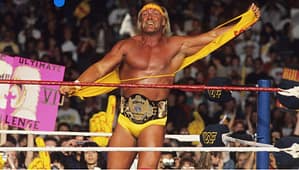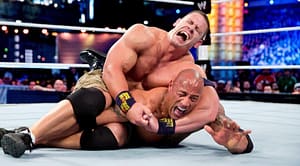Today we are going to talk about the origins of humor in wrestling.

As you look through the comments on certain industry events, you may have noticed that not everyone likes the entertainment segments, the funny wrestlers, or the overly loose expression.
But, unfortunately, when that happens all the time, many, willy-nilly, adopt that viewpoint, creating a cycle of radical attitudes toward comedy in wrestling.

You don’t have to go far to get examples: many people took the Lana and Table comedy storyline negatively; Shinske Nakamura’s acting still stirs the minds of many fans despite being in the main roster for almost five years; Big E’s lack of acceptance as WWE champion comes down to the fact that he has been a non-serious character most of his career; the community hates title chases 24/7.
Wrestling has become so popular that even games like teen patti game online introduced the theme of wrestling because fans of the show quite a lot.
The most memorable comic characters that the audience remembered were:
● Hulk Hogan;
● Dwayne Johnson;
● Bray Wyatt.
What is wrestling?
Even if you are as confident as possible in yourself and your knowledge – don’t be lazy to pay attention to this point because I will continually build on it in the future.
So, wrestling is about stories, and in the usual sense, stories between two people who conflict.
The reports can be multi-stage, and the wrestlers themselves taking part in them occupy a specific niche.
There are secondary characters, and there are main characters.
Some characters rise to the top, and some need to go down because of a setback at the top.
Victories serve as an engine, losses serve as a brake, and audience reaction, in this case, is an additional factor that helps the wrestler advance or puts sticks in his wheels.
Anything that happens inside professional wrestling is nothing new, and it’s literature in its purest form, screened in a particular environment.
That environment has its own rules, its foundations, and its clichés, but the general backbone of it doesn’t change.
In this respect, wrestling is not much different from movies and TV shows; it’s the same art form, only, if I may say so, endless.
Even if a wrestler and promotion’s paths diverge, he continues his story in another company, creating an extended loop of an entertaining journey that can only be cut short by the wrestler’s unwillingness, or inability, to pursue it further.
The stories get attention; the wrestler’s journey is what many pay big bucks to buy tickets for or to watch legally.
But don’t forget the casual gawkers who just came to the show to be entertained and to rest their souls.
They may not even know what they’re going to see.
Still, they want to have fun, so we need matches that satisfy everyone, both those who follow the industry closely and those who want to relax.
The Magnificent George; Jerry Lawler vs. Andy Kaufman as a confrontation that changed the way the industry was approached Magnificent George was the father of mainstream wrestling, first seen by audiences (precisely as a character) in 1941.
He was a brilliant wrestler who knew how to create a hit with the audience, make them hate him with all their hearts, and thus get as involved in his match as possible.
Raymond George Wagner (the wrestler’s actual name) played on the stereotypes of the time and people’s attitudes toward off-the-wall stuff.
The gorgeous George was a mannered, dyed-blond, clean-cut man, walking out in a pretentious robe with a perpetual valet, Jeffries, who escorted the wrestler down the red carpet, who carried a silver mirror and spread rose petals at his feet.
Upon entering the ring, Jeffries sprayed disinfectant and obligingly sprayed the judges’ hands against their will before they dared touch the great one.
All these actions had already made one part of the audience genuinely hate him, and another part laughed at the acts unfolding before their eyes.
Unfortunately, this is just the wrestler’s exit; the match hasn’t even started yet, but Heal already has a hit, and babyface is getting the advantage.
And considering that in addition to all that contrived importance, Magnificent George was not only not shy about cheating, but he also made cheating his strong ideology, one can fully imagine how the audience wanted to destroy him.
The Effect Produced
The effect of Magnificent George’s actions was produced when television came along, and matches featuring him began to broadcast to many millions of audiences.
On November 11, 1947, people saw the wrestler on TV for the first time.
There were so many viewers that the program broadcasting it was the first of its kind to start making huge, substantial profits, and George became a national celebrity in no time.
He was even more popular than the leading actors of the time.
With all that said, you couldn’t call him a terrific wrestler; at least he was noticeably inferior in wrestling ability to that same Lou Thesz, even though he had experience in freestyle wrestling.
Lou Thesz himself, in his peculiar way, praised George, admitting that he was “not bad,” but then added that Wagner could never have attracted a fan if he had not become The Magnificent George.
However, this is by no means envy nor an accusation that the wrestler was just lucky.
These are words that, very shortly, will set the industry on the path in which it will break through the next peak and create its new height.
And while that perfect formula hasn’t been figured out, and George alone, albeit on this scale, is still not enough for the full attention, the beginning has been made.
Professional wrestling is about characters.
And when the characters, for all their awesomeness, are also funny, it’s doubly, if not triply, better.
The revolution happened a little more than 30 years later.
Bottom line
Wrestling is a swing, and where there’s unbridled fun, there’s also room for drama; you can always show a comedic character as a more profound, more empathetic, and picking themselves up, taking advantage of
both the limitless benefit of the professional wrestling industry, where anything is possible and the expertise of comedic actors who, in fact, often turn out to be depressed people.
But, of course, such a plot would succeed if it had the right wrestler at its center and the right people above it who could make it happen.
Scenario moves like this present themselves well when the wrestler plays a role.
At least some of it, but a part.
At least someone, but he presents himself to the audience.
Suppose you can describe a wrestler’s anthem with one word and describe what he’s doing with the other two; congratulations because this wrestler is no longer empty.
And maybe there will be a shocking twist in his story that will grab the mass public’s attention and give wrestling an unexpected round of popularity.
Or it will just happen some other time.
Advertise with the mоѕt vіѕіtеd nеwѕ ѕіtе іn Antigua!
We offer fully customizable and flexible digital marketing packages.
Contact us at [email protected]
















